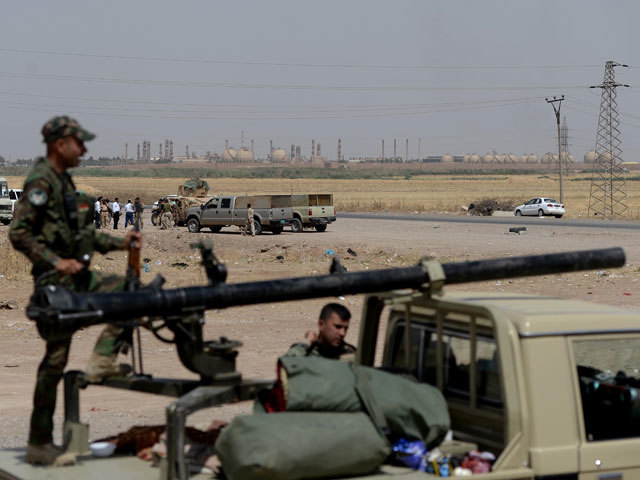
Brent and West Texas Intermediate crude climbed for a second day after U.S. President Barack Obama authorised air strikes in Iraq, the second-biggest oil producer in the Organization of Petroleum Exporting Countries.
Futures advanced as much as 1.3 percent in London and 1.1 percent in New York. While Obama cited no plans to send ground troops to Iraq, he authorised air strikes against militants if they threaten U.S. personnel. Conflict in the OPEC producer has so far spared production in Iraq’s south, home to about three- quarters of its crude output.
“The dynamic has now shifted, and risks now go to the upside,” Michael McCarthy, a chief strategist at CMC Markets in Sydney, said by phone today. “The forces that will be targeted are in the north of Iraq, well away from most of the oil production facilities, but sentiment can drive markets for significant periods of time.”
Brent for September settlement gained as much as $1.41 to $106.85 a barrel on the London-based ICE Futures Europe exchange and was at $106.68 at 12:59 p.m. Singapore time. Prices are up 1.8 percent this week, the most in two months.
WTI for September delivery climbed as much as $1.11 to $98.45 a barrel in electronic trading on the New York Mercantile Exchange. The volume of all futures traded was about 233 percent above the 100-day average. The U.S. benchmark crude was at a discount of $8.40 to Brent.
Iraq Conflict
Brent increased 2.7 percent in June, the most in 10 months, as fighters from a breakaway al-Qaeda group known as Islamic State captured the northern city of Mosul and advanced toward Baghdad. Iraq pumped 3 million barrels a day in July, compared with 9.82 million from Saudi Arabia, the biggest OPEC producer.
Obama said the U.S. will strike militants if they move toward the Kurdish city of Erbil, where it has diplomatic personnel. The U.S., which also dispatched planes to drop food and water for trapped civilians in Iraq, has “unique capabilities to help avert a massacre” and “cannot turn a blind eye,” Obama said in remarks at the White House.
The militants, previously known as Islamic State in Iraq and the Levant, attacked villages in the north of the country, driving as many as 50,000 people into hiding in the mountains without water or food. The group also seized the nation’s largest dam, whose destruction could flood the city of Mosul, according to an employee on site and local officials.
Kurd Support
“Prices are likely to be supported, especially now that air strikes have been authorized,” Barnabas Gan, an economist at Oversea-Chinese Banking Corp. in Singapore, said by phone. “If the issues escalate, the worst scenario for the market to look at is $110 a barrel for Brent if things really blow up.”
Kurdish forces known as the Peshmerga need military support to fight the militants, Falah Mustafa Bakir, the regional government’s foreign minister, said yesterday in an interview. Security personnel have been fighting Islamic State for several weeks, battling for control of territory and oil fields close to the semi-autonomous region’s borders.
Genel Energy Plc, the largest producer in Iraqi Kurdistan, said the region’s independent pipeline exports won’t be impeded by the violence and political turmoil engulfing the country. The regional government has loaded five cargoes in Ceyhan, Turkey, and two have been bought and paid for, Chief Financial Officer Julian Metherell said Aug. 5.